
If you have dry skin, choosing a body wash can be a challenge. How do you find a body wash that will cleanse your skin without overstripping it? How do you strike the perfect balance between cleansing and hydration? Believe it or not, a shower oil may be the answer to your problems.
What is shower oil?
Shower oil is a type of body wash that cleanses and moisturizes the skin at the same time. Unlike shower gels, which tend to be water-based and contain powerful surfactants, shower oils are–as the name implies–oil-based and are often heavy on the emollients. Shower oils are usually formulated with natural oils–almond, avocado, coconut, jojoba, macadamia, and rosehip are just a few examples–, so they have silky and nourishing textures, different from the lightweight shower gels you may be used to.
Due to their low surfactant content and high emollient content, shower oils are the perfect shower product for dry and sensitive skin. In addition to providing a gentle cleansing action, which doesn’t strip the skin of its natural oils, they also help to keep the skin hydrated and prevent signs of dryness such as flakiness, tightness, or itchiness.
Plenty of people are scared of shower oils because they believe they’ll be unwieldy and difficult to use–they can’t imagine using a liquid oil to cleanse their body, versus the shower gel they’re used to. Well, the good news is that most shower oils aren’t actually liquid! Most have a fluid gel formula that’s easy to dispense, either directly into your hands, or into a washcloth or loofah.
Is shower oil same as shower gel?
Shower oil and shower gel are not the same thing. We’ll run through some of their differences below.
Shower gel typically has more cleansing power than shower oil. This is great if you want a thorough cleanse, but it may be excessively stripping if you have dry skin. Although a shower gel can be moisturizing, it’s typically not as moisturizing as a shower oil. Formula-wise, shower gel is typically water-based, while shower oil is oil-based. Shower gels are usually heavy on the foam, and shower oils tend not to lather as much.
As far as similarities go, shower gel and shower oil fulfill the same purpose in your skincare routine: they’re body washes. In fact, they can both be presented in a gel-like form, although shower oil tends to be more liquid.
What are the cons of shower oil?
Believe it or not, there aren’t a lot of cons to using shower oil instead of shower gel. Some people may not like the way shower oil feels on the skin, but that’s about as long as the “cons” list gets.
Shower oils are, obviously, silkier and “oilier” than shower gels. Some will form a sort of “film” over the skin, in order to help it retain moisture and prevent dryness. This may not be everyone’s cup of tea–some people won’t like the feeling of shower oil on their skin, and that’s just the way it is.
How to use shower oil
Shower oil can seem confusing to use. Below, we’ll get to some of the most common questions about this product:
Do you use shower oil before or after you shower?
Shower oil is, as we’ve stated, a type of body wash, so you’re supposed to use it in the shower, as you would a soap or shower gel.
To use your shower oil, dispense some product onto your hands or loofah, and apply it directly to wet skin. As you massage the oil into your skin, the oil will turn into a cream or foam (depending on the specific formula you’re using). Work the foam all over the skin in order to cleanse it. When you’re done, rinse out as you would any other shower gel!
Do you rinse off shower oil?
Like shower gel, shower oil must be rinsed out of the skin once you’ve finished washing. Some shower oils may leave a moisturizing “film” over the skin, and that’s normal–don’t feel like you need to rinse out that film, as that is what will help your skin retain moisture!
Do you need to moisturize after using shower oil?
Shower oils are designed to give your skin a boost of hydration and nutrition immediately after washing, so your skin will leave the shower feeling more moisturized than usual. However, that doesn’t mean you don’t have to moisturize after bathing, if you so desire! You can use a body lotion of your preference, or even a body butter, depending on how dry your skin is. If you have atopic skin, for instance, you can also moisturize using a body lotion tailored to this issue.
Our favorite shower oils
Now that you know how to use a shower oil in your daily routine, we can show you some of our favorite options. Below, you will find shower oils tailored to all sorts of needs, from atopic skin to
Nivea Rich Care Shower Oil
The affordable shower oil for dry skin
It’s hard not to think of Nivea when we think of caring for dry skin, and the Nivea Rich Care Shower Oil is a good example of that association. Formulated with 55% natural oils and enhanced with vitamins C and E, this shower oil is also pH-balanced to match the skin’s microbiome.
The glistening oil texture transforms into a creamy foam when in contact with water, cleansing the skin without drying it out.
Bioderma Atoderm Huile de Douche Ultra-Nourishing Shower Oil
The best shower oil for atopic skin
The best-selling Bioderma Atoderm Huile de Douche Ultra-Nourishing Shower Oil harnesses the power of patented ingredients–such as D.A.F. (a patented complex that increases the skin’s tolerance threshold) and Skin Barrier Therapy™ (a patented complex that prevents the proliferation of certain bacteria on the surface of the skin)–to soothe, protect, and nourish the skin.
It ensures 24-hour hydration and comfort from the moment of application, making it perfect for the daily care of very dry, irritated, and atopic skin.
NUXE Prodigieux Shower Oil with Golden Shimmer
A shimmery shower oil
Packed with sweet almond oil, the NUXE Prodigieux Shower Oil with Golden Shimmer cleanses and nourishes your skin in a single, deliciously fragrant and shimmery gesture. Specially formulated to deliver a sensorial shower experience, this shower oil is ideal for massaging the skin during the shower, feeling creamy and rich.
The formula is enriched with notes of orange blossom, magnolia and vanilla, making it ideal for those who love fragrant shower care.
L’Occitane Cleansing & Softening Almond Shower Oil
The most fragrant shower oil
The L’Occitane Cleansing & Softening Almond Shower Oil is known the world over for its iconic almond scent–and we agree it’s a pretty special product! Sweet almond oil and grape seed oil, two natural oils, meld together inside this silky formula to help nourish, soften, and restore comfort to your skin.
Use this nourishing oil as a body wash, apply it to the skin prior to shaving (you’ll get the smoothest glide of your life!), or pour some of it into your bathtub for an opulent soak!
Eucerin pH5 Shower Oil
The pH-balancing shower oil
The Eucerin pH5 Shower Oil is, quite possibly, one of the most popular shower oils among people with dry and sensitive skin.
Rich and replenishing (thanks to the natural oils in the formula), this shower oil also features extra-mild surfactants and a unique pH Balance System, which helps maintain the skin’s ideal pH in order to preserve the skin barrier.
Collistar Body Firming Shower Oil
The perfect shower oil for a firming massage
Formulated with a unique blend of natural oils and extracts of linden and rose, the Collistar Body Firming Shower Oil is the perfect shower oil for a truly luxurious bathing experience.
The silky formula not only cleanses and nourishes the skin, but also revitalizes and tones it–an effect that is, of course, enhanced if you use your shower time as an opportunity to perform a targeted oil massage! Why not?
We hope you’ve found the shower oil that suits your needs. Want to look at more options? Then make sure to drop by the shop, where we have a large selection of shower oils at your disposal.
Beauty Writer & Editor


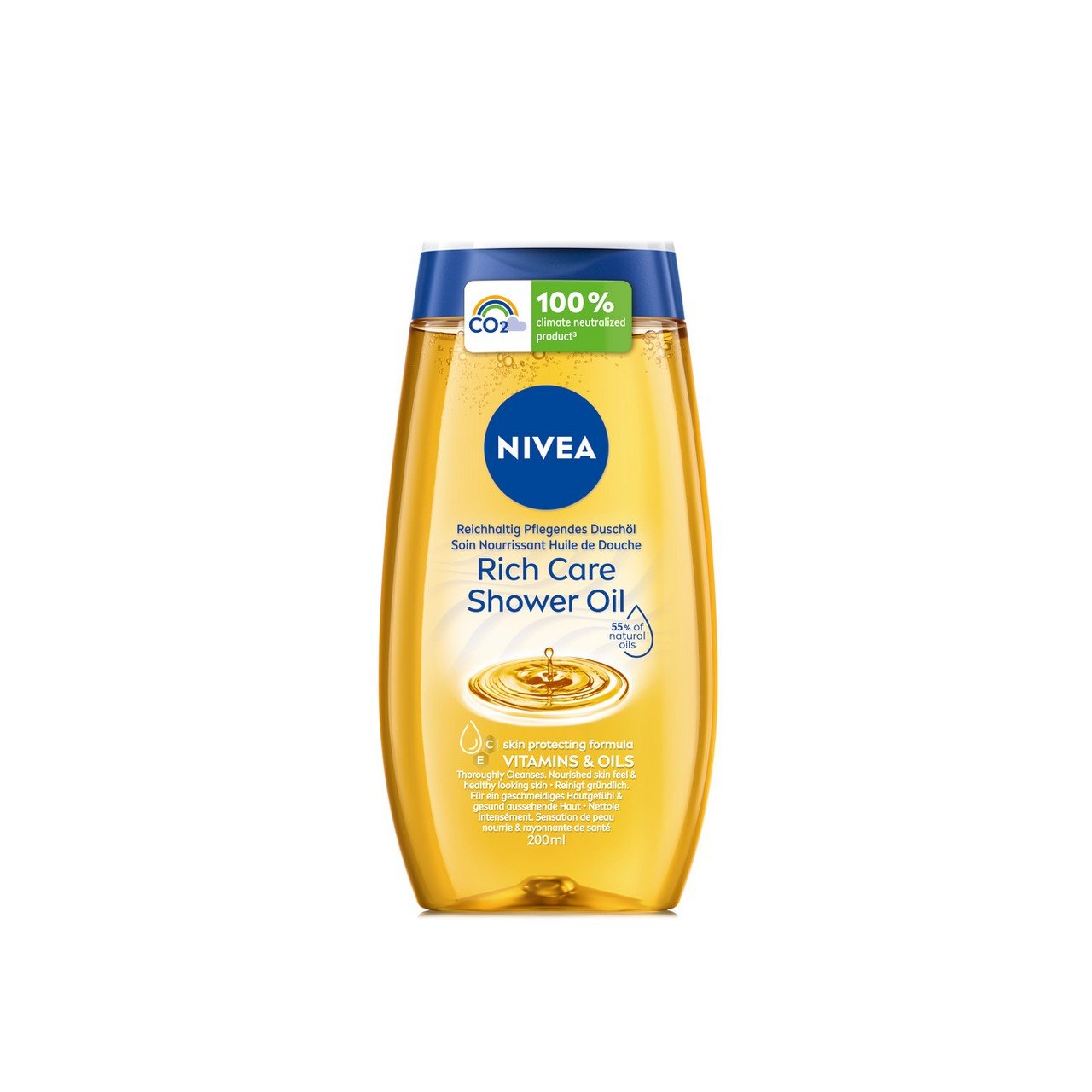 Nivea Rich Care Shower Oil
Nivea Rich Care Shower Oil
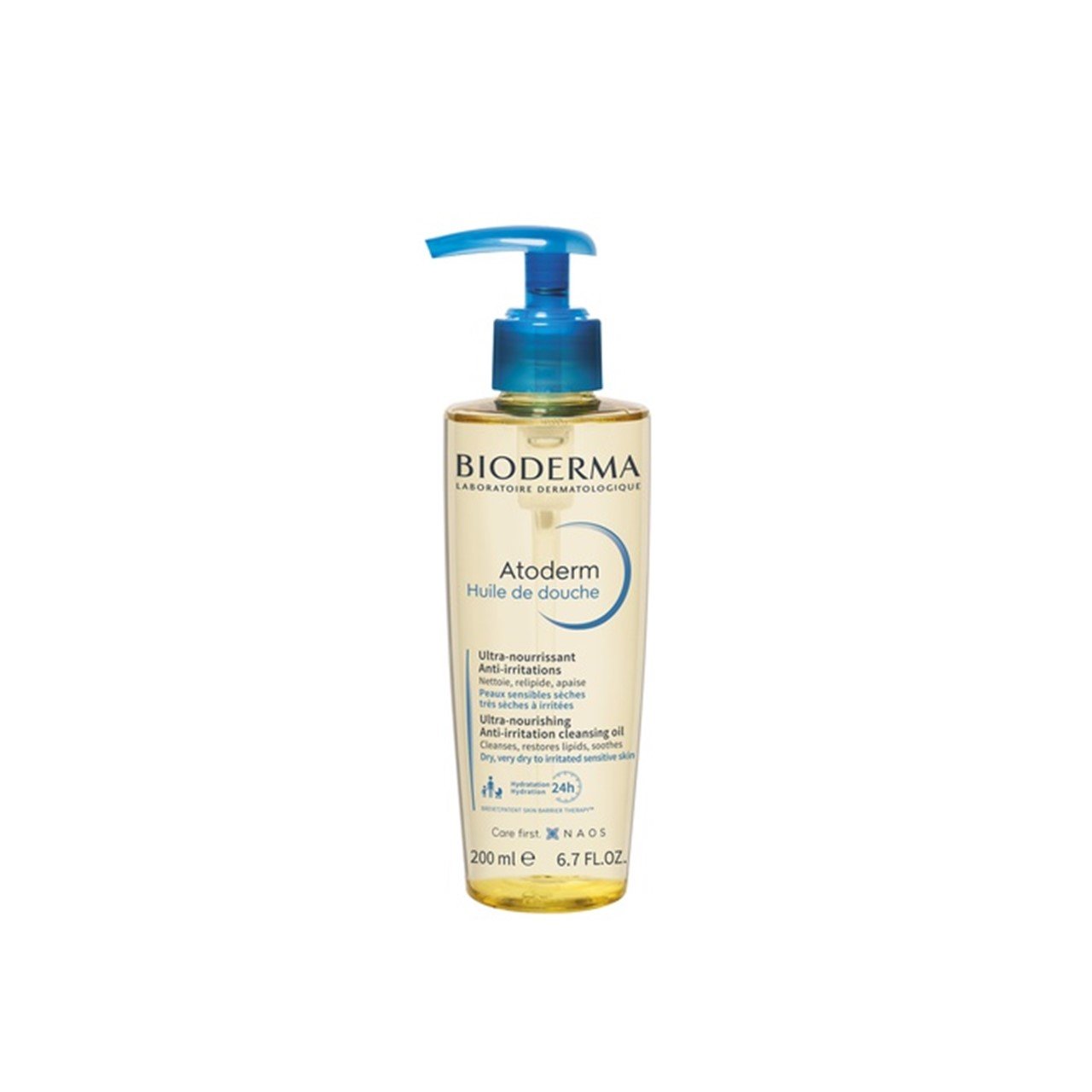 Bioderma Atoderm Huile de Douche Ultra-Nourishing Shower Oil
Bioderma Atoderm Huile de Douche Ultra-Nourishing Shower Oil
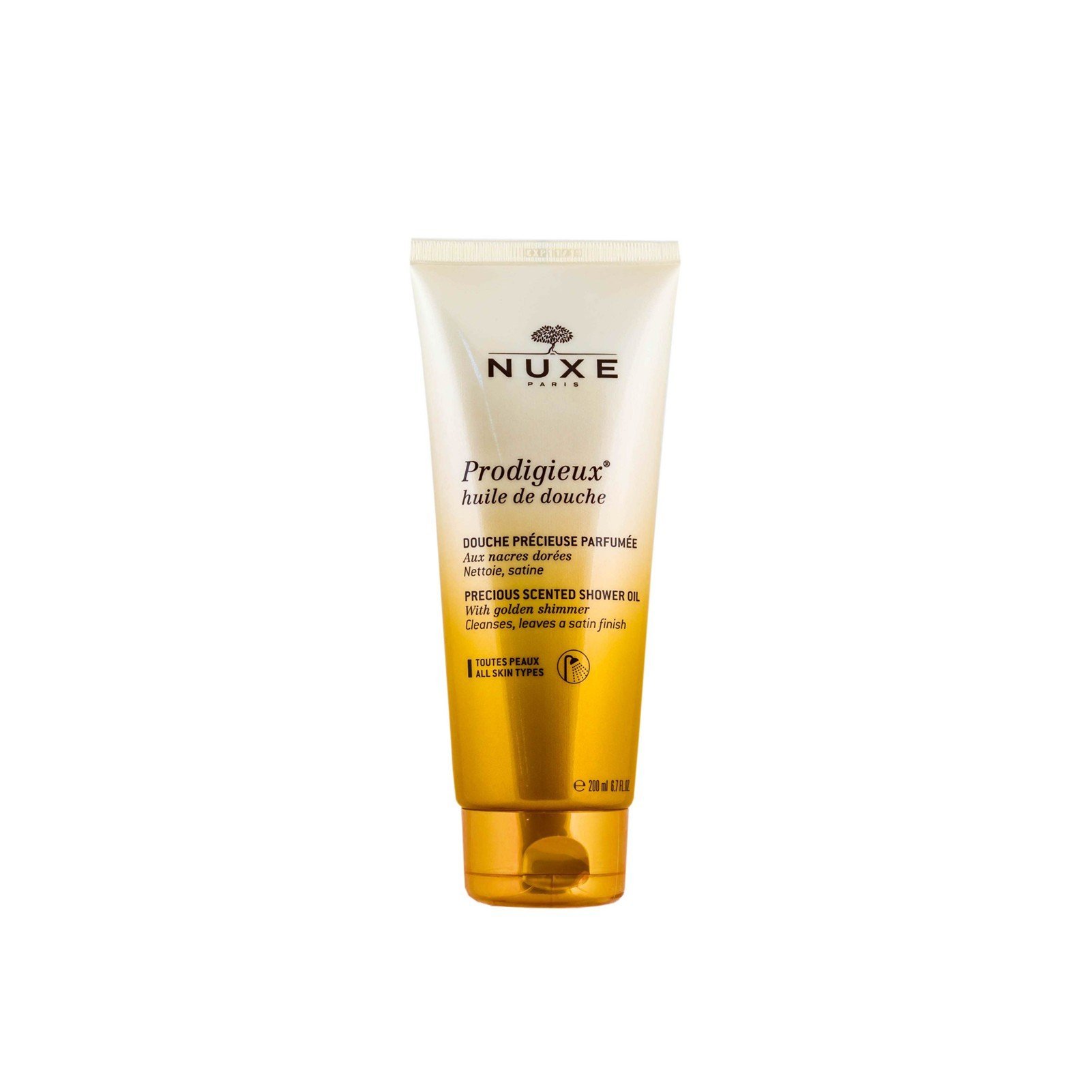 NUXE Prodigieux Shower Oil with Golden Shimmer
NUXE Prodigieux Shower Oil with Golden Shimmer
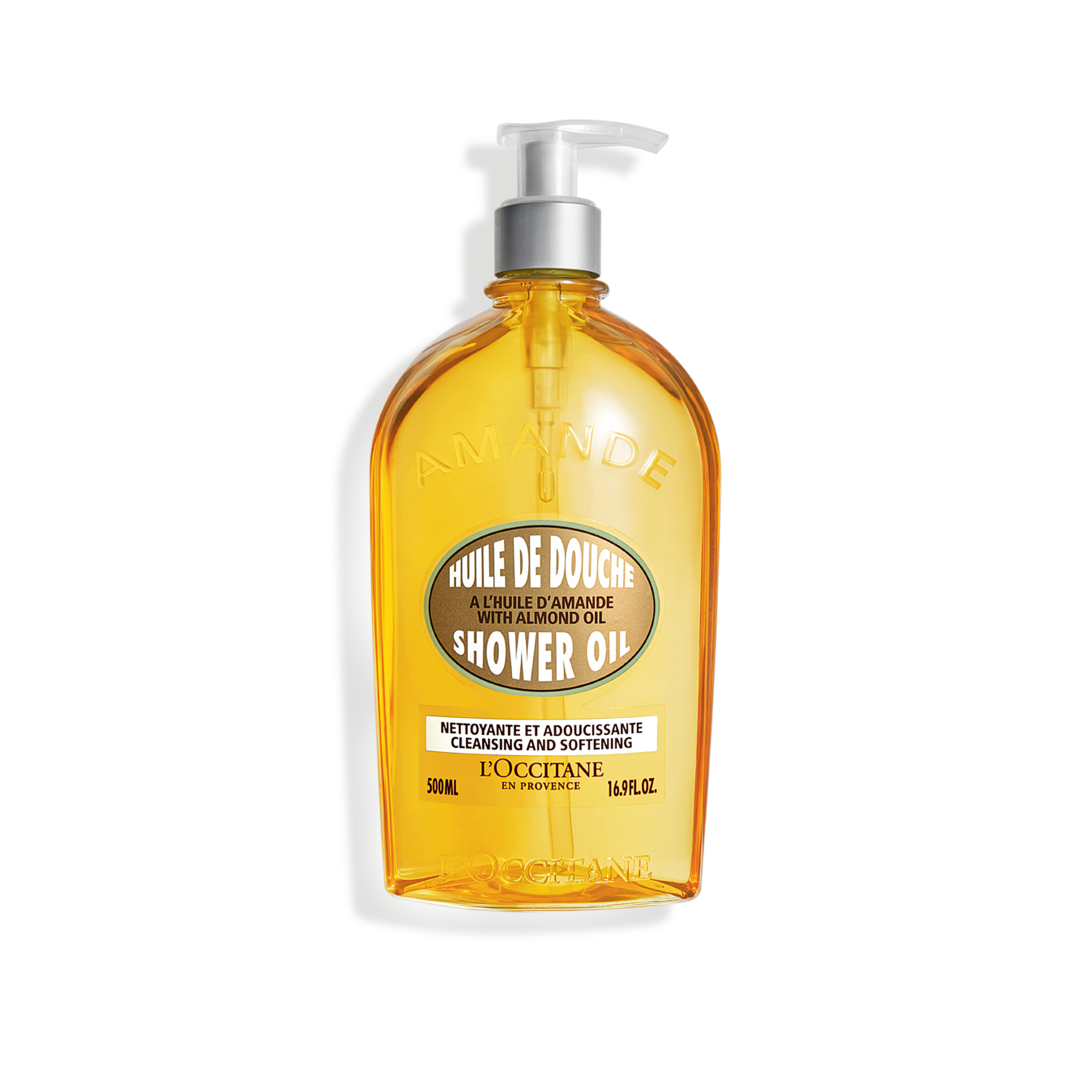 L’Occitane Cleansing & Softening Almond Shower Oil
L’Occitane Cleansing & Softening Almond Shower Oil
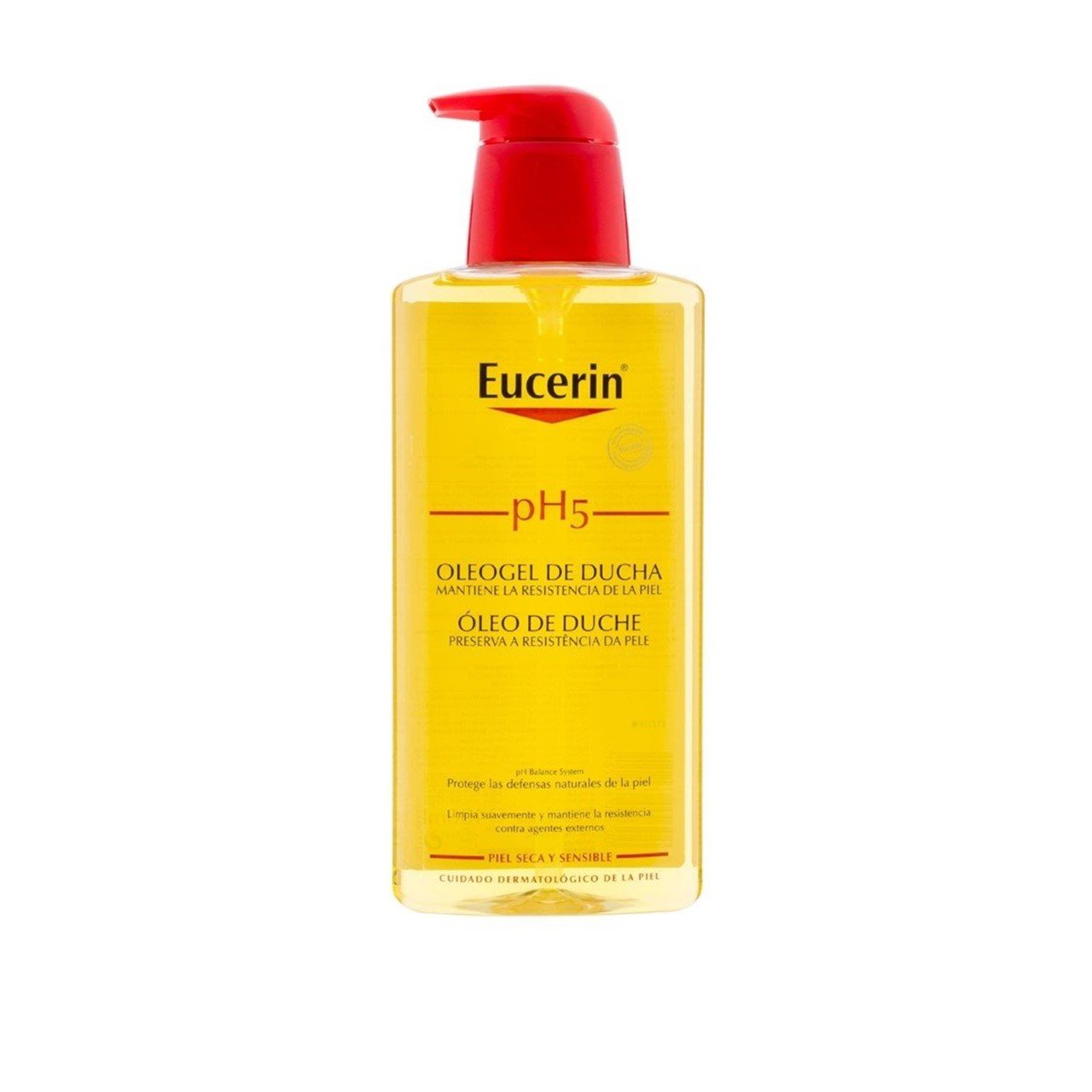 Eucerin pH5 Shower Oil
Eucerin pH5 Shower Oil
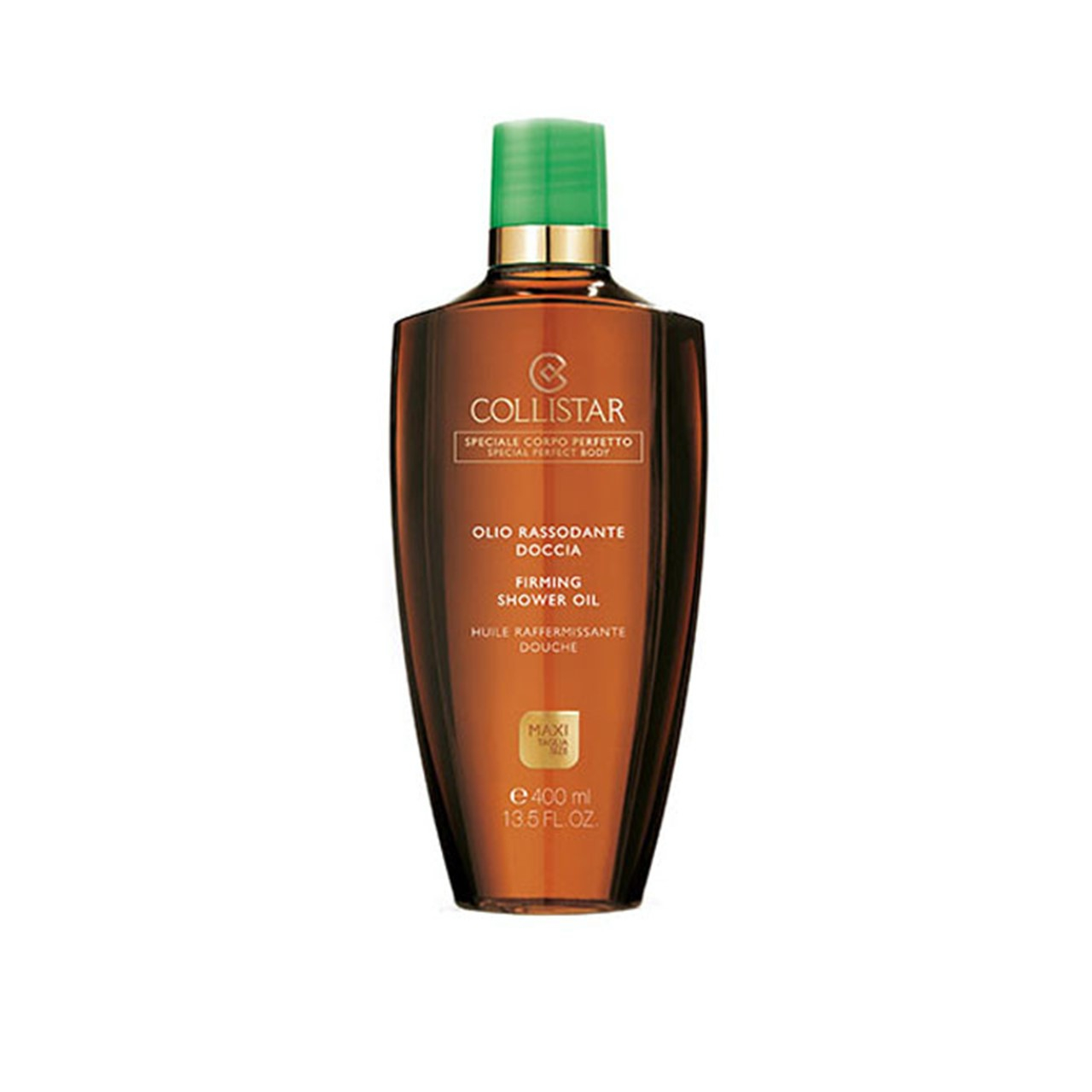 Collistar Body Firming Shower Oil
Collistar Body Firming Shower Oil
